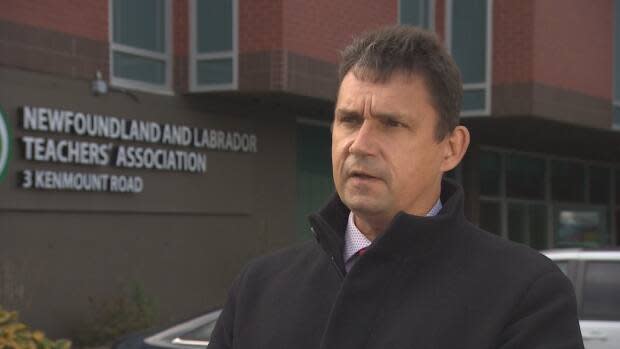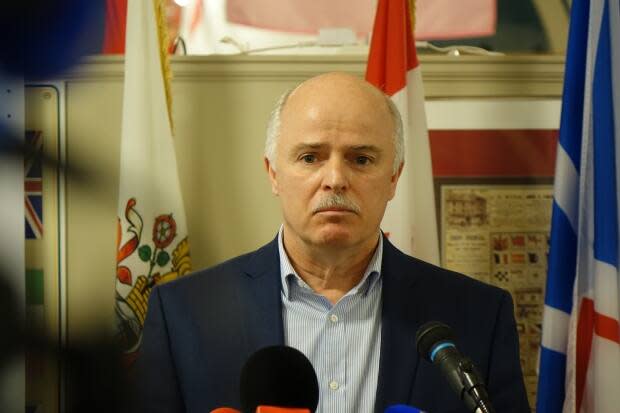Teachers association says there should have been more consultation ahead of Greene report

The Newfoundland and Labrador Teachers' Association says there should have been more education consultation ahead of the Greene report.
The long-awaited report from the premier's economic recovery team, led by chair Moya Greene, was released Thursday, aiming to address what Greene calls a "fiscal crisis" with recommendations for everything from cuts and tax increases to privatization and a streamlining of the public service.
President Dean Ingram said Friday that parts of the report are 'beyond disappointing' and even 'insulting.'
"There was nobody on the premier's economic recovery team, including Dame Greene, with extensive background experience or expertise in public education," he said.
According to Ingram, the NLTA met with Greene in November 2020. He said the meeting lasted less than an hour, and that was the only time they were consulted.
"The report calls for increased support for students with disabilities, mental health issues and those at risk of dropping out of school, at the same time criticizing the recent resources added to the system to implement the 2017 recommendations of the Premier's Task Force on improving educational outcomes."
Ingram has also taken issue with Greene's recommendation to ensure that principals, vice principals and other supervisory staff be removed from the NLTA.
He said the NLTA will fight any attempt by the government to legislate changes to collective agreements or to remove any member from the association.
Changes to school hours recommended
In the report, Greene recommended changing school hours to create an eight-hour-day for teachers, so they can use some non-teaching time during the work day for professional development. Ingram said the reasoning behind that suggestion was offensive.
"The suggestion that extending official school operational hours will somehow create more time for professional learning collaboration is ill-informed and insulting," he said.
"To suggest that teachers engage in five hours of instruction per day without investing additional time in planning and preparation is naive."
One of Greene's most significant recommendations was to "streamline" the administrative structure by eliminating the English and Francophone school districts, with a goal of spending less on administration and reinvesting that money directly at the school level.
It will not be positive for students. It will not be positive for teachers. It will not be positive for the province. - Dean Ingram
Ingram said he can't figure out how that move would help to improve educational outcomes.
"The fact of the matter is that [the English and Francophone school districts] perform administrative support for the system," he said. "The report is very vague on how this will actually provide an economic benefit."
He compared the idea to when the government reduced the number of English school districts in the province from four to one in 2013.
"I know that in terms of the removal of support, it removes another layer of support for the system," he said.
"Having those supports downloaded to our school administrators will not be positive for the system. It will not be positive for students. It will not be positive for teachers. It will not be positive for the province."

Meantime, Education Minister Tom Osborne is not ruling out the possibility of abolishing the French and English school districts.
"We need to analyze whether or not, constitutionally, it's even a possibility," Osborne said. "We need to consult with those affected, as well."
Greene's report noted a few staggering facts, including three schools in the province that don't have any students and 10 schools in the province with less than 10 students. Those facilities, according to the report, are costing the province hundreds of thousands of dollars.
Osborne said he wasn't surprised that Greene acknowledged the empty or near-empty facilities. Even so, he said stakeholders and the public will be consulted before any recommendations from Greene's report are implemented.
"Over the past number of days and weeks, we have been looking at schools with no children and no children projected to go into them … I've had discussions with the English school district on what the future of those buildings are," he said.
"I think the taxpayers of the province would have a lot to say as to whether or not it's practical or acceptable to continue to fund the building and the other costs associated with the building if there are no children to go into that building."

 Yahoo Movies
Yahoo Movies 